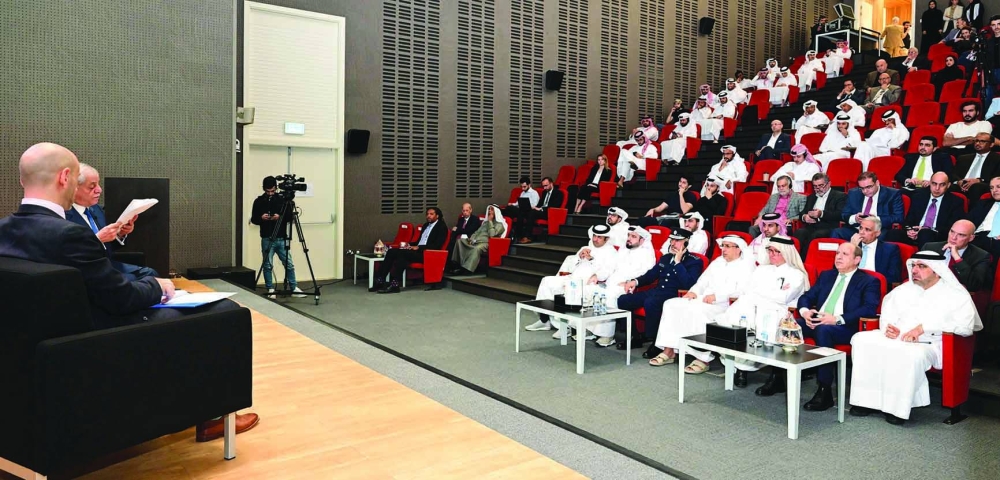Qatar University’s (QU) College of Law has launched the Ibn Al-Shaybani Lecture Series on International Law with Awn al-Khasawneh, Jordan’s former Prime Minister and former vice-president of the International Court of Justice (ICJ), delivering the inaugural lecture.
Qatar’s Supreme Judicial Council President HE Dr Hassan bin Lahdan al-Muhannadi, ambassadors, and representatives of various government sectors were present, a statement said. The series, organised in partnership with the International Law Association’s Qatari Branch (ILA-Qatar), aim to delve into the jurisprudence of the International Court of Justice and the future of international dispute settlement.
In his opening address, QU Law dean Dr Talal al-Emadi underscored the objectives of launching the annual lecture series. These include, among other things, the focus on discussing developments in the international legal system from an Arab and Islamic perspective.
He emphasised the importance of adhering to and implementing the rules of international law, including the rules of state responsibility and dispute settlement, particularly in light of current challenging circumstances and flagrant violations, notably in Gaza.
Al-Khasawneh initiated the discussion by exploring the concept of self-defence in international law and its misuse by states. He underscored that self-defence cannot justify indiscriminate mass attacks or excessive use of force by states.
Regarding the settlement of international disputes, the speaker stressed the necessity of identifying the appropriate method for dispute resolution. He referred, for example, to the issue of reservations to the compulsory jurisdiction of the ICJ under Article 36 of its Statute, citing previous cases in which he was involved. Al-Khasawneh highlighted the challenge posed by reservations and states’ efforts to avoid the Court’s compulsory jurisdiction.
Consequently, most cases before the ICJ are brought based on compromissory clauses in international treaties or by mutual agreement between states. He also addressed the phenomenon of non-appearance before the Court during oral proceedings, citing Russia’s absence in the case brought against it by Ukraine. Furthermore, he discussed the need to enhance the procedural rules of international courts and tribunals to enable them to effectively fulfil their role in resolving disputes between states.
Al-Khasawneh underscored the significant role that regional organisations should play in settling disputes between their member states. He cited examples such as the League of Arab States and the Organisation of Islamic Co-operation, highlighting the possibility of submitting disputes to specialised courts, particularly in the fields of investment and arbitration.
In an open discussion with Dr Ioannis Konstantinidis, assistant professor of International Law at QU, al-Khasawneh addressed the ICJ’s jurisdiction to provide advisory opinions. He noted the increase in requests for advisory opinions, including those related to the Occupied Palestinian Territories and climate change.
He also discussed the recent Provisional Measures Order issued by the Court in the South Africa v Israel case regarding the situation in Gaza, expressing concerns about the absence of an explicit reference to a ceasefire. Nevertheless, he emphasised that adherence to the Court’s provisional measures would practically lead to this if implemented in good faith.
Al-Khasawneh concluded his speech by expressing hope, despite his concerns about current events, and encouraging researchers, practitioners, and students to continue studying and developing the rules of international law.
The Ibn Al-Shaybani Lecture Series on International Law aims to host leading public international law experts annually to engage in dialogue with academics, scholars, and policymakers on contemporary issues of international law. These lectures seek to raise awareness of international law in the Mena region and encourage the application and development of its rules in the region and beyond.

